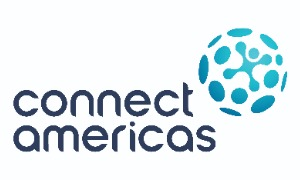- One of the objectives is to improve time-to-market of new products
- The demand for R&D and post-sales engineering support services for medical devices is expected to increase
OUTSOURCING
Pharmaceutical outsourcing is on the rise
The need to speed up delivery times, increase flexibility and reduce costs is leading the upturn of the pharmaceutical outsourcing industry. Latin American countries enjoy ideal conditions to satisfy demand and profit from this attractive market opportunity.

HIGHLIGHTS
In recent years, pharmaceutical outsourcing has evolved from basic processes, namely bottling, to more added value techniques such as medical device engineering or R&D (research and development). According to a study by Global Industry Analysts, the practice of outsourcing pharmaceutical bottling started to develop over a decade ago. Today, most of largest companies in the industry worldwide use this method due to the proven benefits.
The positive process-outsourcing experience, the increase in patients subject to medical procedures and the improvements in illness detection and diagnosis in developing countries are key factors that will propel the growth of this market over the coming years. As in other industries, pharmaceutical companies are increasingly focusing their resources on their core business and are leaving other processes to specialized outsourcing firms.
The PM Farma website indicates that manufacturers are seeking services to help reduce product recalls or regulatory validation times for purposes of improving time-to-market of new products. These factors are crucial to company survival in an increasingly competitive market.
Future Outlook
Recent years have witnessed a trend in outsourcing higher value techniques. MedCity News affirms that critical processes in the value chain are being outsourced, offering an excellent opportunity for companies interested in providing these services. Today, companies from the pharmaceutical or medical sector are beginning to outsource research, prototype design, validation, feasibility tests, regulatory compliance, post-sales engineering activities and product maintenance and upgrades.
A significant increase in the demand of R&D and post-sales engineering support services for medical devices is expected. The consultancy firm Global Industry Analystsmple reports, for example, that pharmaceutical contract manufacturing will generate an estimated market of $42 billion dollars in 2015.
Given the increasing use of electronics in medical devices, the demand for testing and quality control services will take off. The pharmaceutical regulatory agency in the United States, the Food and Drug Administration (FDA), categorizes health products in three classes to ensure a medical device’s safety and efficiency, in addition to the applicable marketing approval process.
Class I devices are considered of "low risk", Class II devices require "general and special controls" and Class III require premarket approval. Class II and III devices are being manufactured with increasing technological sophistication, such as microelectronic chips (latest computer technology components). This is why rigorous device testing has become a vital process for ensuring user safety and product performance.
Pharmacovigilance
New legislation was passed in July 2012 regulating pharmacovigilance (drug safety), which applies to the entire European Union (EU). The objective is to have systematic procedures responding to quality standards for enabling quick detection of possible risks associated with drugs that are already in the market.
Since these regulations entered into effect, there have been significant changes at all levels, ranging from health authorities and pharmaceutical companies, to industry outsourcing providers. Outsourced pharmacovigilance activities require a high level of quality and compliance with health authority requirements, hence the use of experts with in-depth knowledge of the industry.
This element is a crucial step in the development of new medicinal products since it requires following up on millions of data points to monitor possible side effects of the analyzed compounds. This management area requires information systems engineers, chemists, experts in pharmaceutical processes and other high added value specializations.
These new regulations not only offer opportunities to the pharmaceutical outsourcing sector but also to manufacturing companies and final consumers. For example, a publication by Accenture indicates that by outsourcing analytics capability the organization can collect and analyze data more efficiently, which can lead to a considerable reduction in the approval cycle, identify drugs with no marketplace potential and get approved drugs to market faster.


Follow Us